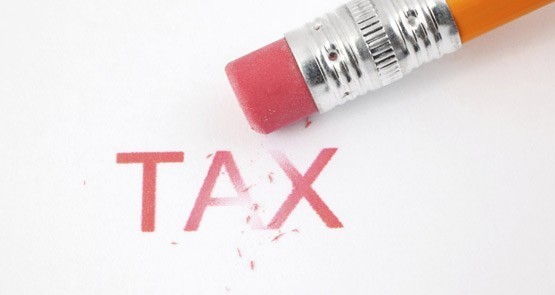The government is putting a lot of faith in its ability to portray Labor as the party of higher taxes. It had better work, because it’s being used to shut down all sorts of useful ideas that might enable the government to return to surplus sooner than it currently expects. As Arthur Sinodinos, whose job now appears to be Australia’s best-informed political commentator rather than an actual political participant, put it, the decision to declare superannuation tax concessions off limits was purely a political tactic.
As Crikey has previously noted, for all Abbott’s claim to be the leader who offers a lower tax future than Labor, he plans to increase the tax burden on the Australian economy significantly above that imposed by Labor. But the government is now leaving open the possibility that it will address tax “loopholes”, while maintaining the “no new taxes” fiction.
Loopholes, of course, are in the eye of the beholder. One would assume any tax law outcome that was unintentionally providing a benefit was a “loophole”, but such a description would also describe the extent to which superannuation tax concessions are providing a benefit to high-income earners beyond the policy goal of providing an incentive to save for retirement. And in 2018-19, when the total value of super tax concessions is forecast to become greater than the cost of aged pension, that point would be uncontestably reached.
Treasurer Joe Hockey had a similar approach in the budget, where the government was at pains to show how it wasn’t imposing new taxes, but was taking “tax integrity” measures, like hitting competitors of News Corp with the GST, and vaguely targeting profit-shifting multinationals.
As the Netflix tax example shows, pretty much anything can be dressed up as “tax integrity” or “level playing field” or “loophole” if that’s how you want to portray it. Handily, the dollars generated by closing tax “loopholes” are just as real as those from removing unintended policy benefits and are just as positive for the budget bottom line as actual tax rises. So stand by for more stern commitments from the government to ensure greater integrity in our tax system, level the playing field for plucky little Aussie companies (like News Corp) battling foreign interlopers and remove unfortunate loopholes, many of which will undoubtedly have been the result of Labor’s failure to properly oversee the tax system. None of which will be new taxes or extensions of existing ones, of course.









Mr Hockey’s budget last week smashed once and for all this perception with the simple fact that his own budget documents show how much Coalition governments rely high tax to pay for their pet projects.
As a share of GDP, Mr Hockeys budget documents show that the level of tax to GDP takes the following profile:
2014-15 21.9%
2015-16 22.3%
2016-17 22.7%
2017-18 23.0%
2018-19 23.4%
And even with that surge in tax revenue, the budget is still in deficit. Whoops.
Recall that in today’s dollar terms, 1 per cent of GDP is over $16 billion.
Let’s look at Labor. For the period of 2008-09 to 2012-13, when Labor were in government, the tax to GDP ratio averaged 20.8% of GDP and was always below 21.7% of GDP. The average tax take is approximately 2% of GDP lower than Mr Hockey is budgeting for over a similar time frame.
Give me my money back Joe!
If you think this is cherry picking the data, let’s have a look at the Howard government. Howard presided over a tax take that would make the Sherriff of Nottingham blush! The tax take hit a record high in seven years of the Howard government. It peaked at a record high 24.2% of GDP and averaged 23.4% of GDP.
Wow! Isn’t it easy to run a budget surplus when you are taxing the tripe out of the population?
OK, OK. Let’s look at Labor again – this time we can go back to the Hawke/Keating governments. The average tax to GDP ratio over the 13 year term in office of Hawke and Keating was just 21.8% of GDP, 1.5% of GDP lower than Howard, and in only two years of 13, did it exceed 23.0%.
So the facts show that the Hawke, Keating, Rudd and Gillard governments were low taxing and the Howard and Abbott governments are high taxing. Simple facts from Mr Hockey’s own budget papers. Have a look at Table 4 of Budget Statement 10. It’s all there.
It would illuminating to show cartoons of the day when menzies campaigned after the war to win power. The ALP lost because it was so financially conservative
Guy, as you suggest, “pretty much anything can be dressed up — if that’s how you want to portray it.”
Sadly, this applies time and again to how you ‘analyse’ economic and many other issues.
That may be why no one else has bothered to comment?
It would be nice to see Crikey spend less time playing stupid political games about which Government has been the highest taxing, and focus more on a) the fundamental need for higher taxes after decades of unsustainable reductions, b) good tax reform that produces net benefits (eg: removing unfair and distortionary concessions like negative gearing, and switching to efficient and productive alternatives to income taxes, like land taxes) and c) if you must talk about the “netflix tax”, focus on its questionable legal basis and complete impracticality of enforcement.
The two loopholes that were not even considered for closing were negative gearing on investment property (responsible for extremely high house prices) and the 50% reduction in tax for capital gains – why should a capital gain be treated differently to any other form of income.